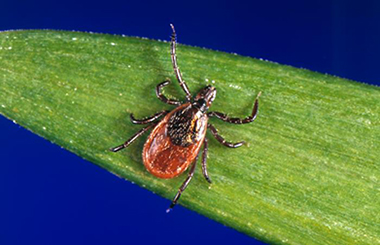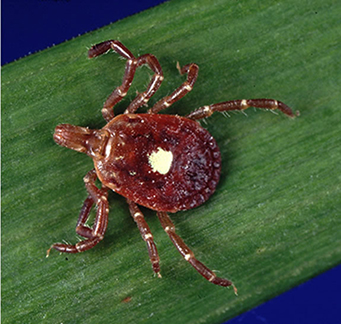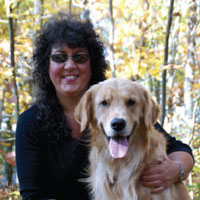New Tools in the War Against Tick Borne Disease

The tick population across the country is currently exploding and expanding. There have been reports of dogs dying of Rocky Mountain Spotted Fever as far east as Connecticut. The Lone Star Tick that is normally responsible for transmitting that particular disease was previously isolated to parts of the Rocky Mountain States but can now be found nearly anywhere. The other huge concern regarding TBD, is the strains are mutating and becoming Tetracycline resistant. This is a recent revelation, and it holds very scary consequences for our beloved four-legged friends. In the past, treatment with Doxycycline or Minocycline would surely knock the bacteria down or eliminate it. Unfortunately, that is no longer the case and in many situations, a combination of antibiotics must be utilized.
It is certainly no secret that tick-borne diseases (TBD) have become a huge problem for our dogs as well as for humans and other animals. However, there are some new facts surrounding TBD diagnosis and treatment that are not so well known. Veterinary research into TBD diagnosis and treatment is currently far more advanced than the same research for humans. The reason being is reportedly because of political factions refusing to validate that TBD is a very real threat to human health and life. For that reason, funding has so far been only slowly allocated to human TBD research. Thankfully, several veterinary experts in this field have devoted their lives to furthering research into developing new diagnostic testing options and cutting-edge treatment options.
We have all done our annual or semi-annual SNAP 4DX testing on our dogs. Unfortunately, the SNAP 4DX only indicates antibody presence in test samples. Antibody presence tells us that the subject has been exposed to the vector-borne disease in question at some point in time. It does not tell us if the subject has a current active infection. The other thing that the SNAP 4DX test does not do is delineate between different strains of TBD. It tells us if there has been exposure to four general categories of vector-borne disease in dogs: Heartworm carried by mosquitoes, Lyme Disease, Canine Anaplasmosis, and Canine Ehrlichiosis, all carried by ticks. Many strains of TBD respond better to some antibiotics than others, so this is a huge issue. We need to know exactly what strain within each of these categories that we are dealing with to treat it appropriately and effectively.
Another great concern is that certain strains of TBD have recently been reclassified and moved to different categories within the SNAP 4DX testing range. One such strain is the particularly deadly strain of Granulocytic Ehrlichiosis. This strain is now classified as Anaplasma Phagocytophilum and will test positive on the SNAP 4DX as Anaplasma. Anaplasma, to date, has been one of the easiest to treat TBDs and many times, a simple 14-day course of Tetracycline would eradicate it. Since the SNAP 4DX only identifies Anaplasma and not the actual strain, it is now absolutely imperative to take that testing to a higher level and identify the exact strain. Thanks to the boundless research in TBD that a group of veterinary experts are waging, there are several new, highly accurate blood tests available.

The first new vector-borne test is called the RealPCR Comprehensive Tick Panel. This test is available through Galaxy Labs at NCSU, or through IDEXX now as well. PCR stands for Polymerase Chain Reaction. This is a molecular test that actually looks for bacterial DNA in the blood sample. Once found, the exact strain(s) can be easily identified. Many times, in TBD transmissions, there are co-infections present. This one test can pinpoint and define all currently known active TBD strains in that sample. The turnaround time for this testing is normally 1-3 days and it is a truly priceless tool in diagnosing TBD. Once the strain is accurately identified and diagnosed, then proper antibiotics and treatment can be implemented. The SNAP 4DX is still a fine screening tool, but if any TBD is positively identified, it is of utmost importance to take that next step and run a RealPCR Comprehensive Tick Panel. This is the only test available that will pin down if there truly is an active TBD infection, and also accurately identify which strain or strains are present.
The second new vector-borne test is called the Galaxy ePCR Diagnostic Panel. The ePCR Diagnostic Panel is currently performed only at Galaxy Diagnostics at NCSU in Raleigh-Durham, NC. This test is designed to primarily identify Bartonella, one of the most common tick-borne co-infections. Bartonella is very hard to identify in a single blood sample due to its adept ability to hide in blood cells. One strain of Bartonella is known as Cat Scratch Fever and has been around for a very long time. This bacterium produces cycles of blood-borne infection. The Galaxy ePCR test consists of a triple blood draw, one draw every other day over a seven-day period. The blood samples are refrigerated and all sent together once the third draw is complete. The blood must be sent to the lab the quickest way possible on ice. Once in the laboratory, each sample is cultured separately in a special medium that promotes the growth of this specific bacterium. The turnaround time for this test is about 3 weeks. If your dog has a persistent illness and the SNAP 4DX and the RealPCR Comprehensive Tick Panel are showing negative results, the next step should be a Galaxy ePCR Diagnostic Panel. Again, it is important to note that Bartonella is extremely hard to isolate in a single blood draw. Research has shown that the ePCR with its triple draw and special cultures is very effective in exposing and diagnosing this bacterium.
In closing, I would like to reiterate the importance of employing these new TBD testing tools. They provide us with invaluable diagnostic resources for TBD that was previously unavailable to us. All we had to date was the SNAP 4DX, which is still a great screening tool, but falls far short of the new PCR test’s comprehensive reporting capabilities. I would certainly also recommend the RealPCR Comprehensive Tick Panel for dogs that do not test positive on the SNAP 4DX, but are displaying odd or vague symptoms that appear to come and go. Some of these vector-borne diseases can lay latent for weeks, months, or even years, producing symptoms for a few days, then none again for possibly up to several months. The vector-borne bacterium are masters at hiding in blood cells, all the while causing system-wide chronic inflammation. Over a period of time, this constant inflammation can lead to a host of other potentially deadly diseases including thrombocytopenia, acute organ failure, and cancer to name only a few. Since our dogs cannot talk and tell us they are not feeling well, we must be observant and ready to act in their best interest. Please share this priceless information far and wide as it is not readily available even to veterinarians yet. It could save thousands of lives, maybe even the life of your own dog. It almost saved my very handsome and talented Golden boy.
Rest in peace sweet Kirby. May your legacy live on by saving many others from your fate. You will most certainly never be forgotten. To date, Kirby has saved or given closure to over a dozen dogs and their owners by sharing his full story. With each dog saved, Kirby smiles.









Ask Cindy.